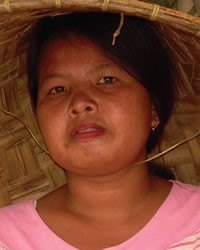Musi in Indonesia

Photo Source:
Copyrighted © 2026
Anonymous All rights reserved. Used with permission |
Send Joshua Project a map of this people group.
|
| People Name: | Musi |
| Country: | Indonesia |
| 10/40 Window: | Yes |
| Population: | 710,000 |
| World Population: | 710,000 |
| Primary Language: | Musi |
| Primary Religion: | Islam |
| Christian Adherents: | 0.07 % |
| Evangelicals: | 0.00 % |
| Scripture: | Portions |
| Ministry Resources: | No |
| Jesus Film: | Yes |
| Audio Recordings: | Yes |
| People Cluster: | Musi of Sumatra |
| Affinity Bloc: | Malay Peoples |
| Progress Level: |
|
Introduction / History
The Musi people group live throughout the regencies of Musi Banyuasin and Musi Rawas. Their name comes from the Musi River along which they live. In the Musi Banyasin Regency, the Musi people live in the districts of Sekayu, Sanga Desa, Sungai Keruh and Babat Toman. In the Musi Rawas Regency, they live in the Muara Lakitan and Muara Kelingi districts. There are also many Musi people living in Palembang who tend to live in groups together with other Musi people. The Musi Rawas Regency is a very isolated area, and the roads are not good.
What Are Their Lives Like?
The means of livelihood among the Musi is often strenuous work including farming, hunting and fishing. They also work in a variety of other fields such as forestry, transportation, construction, education and government work. Those living in the city of Palembang work as university professors, research specialists, land developers, shipyard workers and bicycle rickshaw drivers. Many of their traditional raised platform houses, both above land and water, are being replaced with modern style homes. This is happening because of many factors, one being that the wood materials for the raised platform are difficult to maintain. In Musi culture, a young, engaged woman becomes the responsibility of her fiance. He must pay for all her needs except food which is still her parents' responsibility. The Musi use the patrilineal system for their line of descent. Within the family, the husband is responsible for making a living and protecting his family. The wife's responsibilities are to take care of the tidiness and harmony of the home so that the husband can say, "My home is my heaven." Musi Sekayu families prefer male children because they believe males guarantee the continuation of their hereditary line.
What Are Their Beliefs?
Almost all the Musi follow the religion of Islam. Building a house of worship other than a mosque is not allowed in the Musi area by the local government.
The Musi have two differing opinions concerning changing one's religion. The first opinion is that changing one's religion is not allowed by a Musi Muslim for any reason. The other opinion is that changing one's religion is an individual right, so it would not be a problem for a person to change. Marriage between people of different religions is also not allowed. The non-Muslim partner must change their religion to Islam which can be done by saying the sentence which professes faith in Islam and, if he's a man, he must also be circumcised. If one of the partners does not want to change their religion, then the marriage is considered invalid.
The reason Musi people are Muslim is because their ancestors were Muslim. They follow the Islamic religion because it has been passed down to them and is a part of their culture and not because they understand it or have faith in it. Because of this, religious worship is not an important factor in their lives but rather, it is a part of their identity.
What Are Their Needs?
Musi livelihood consists of only small rice and rubber crops. Rice can only be planted and harvested once a year even though the average Musi person lives along the Musi River. The Musi River is a very large river that empties into all the other rivers in South Sumatra. Because of their dependence on rice as their livelihood, the Musi people need irrigation technology so they can make use of the river water for irrigating their rice farms to have two or three harvests a year.
Prayer Points
Pray that the few Christians among them will be faithful witnesses to the goodness of Christ to all those around them.
Pray the Musi people will gain no satisfaction from following a religion of works, and instead will yearn to know the love of a God who will relate to them on a relational basis.
Pray for the Lord to thrust out workers to disciple the Musi people in the ways of Jesus.